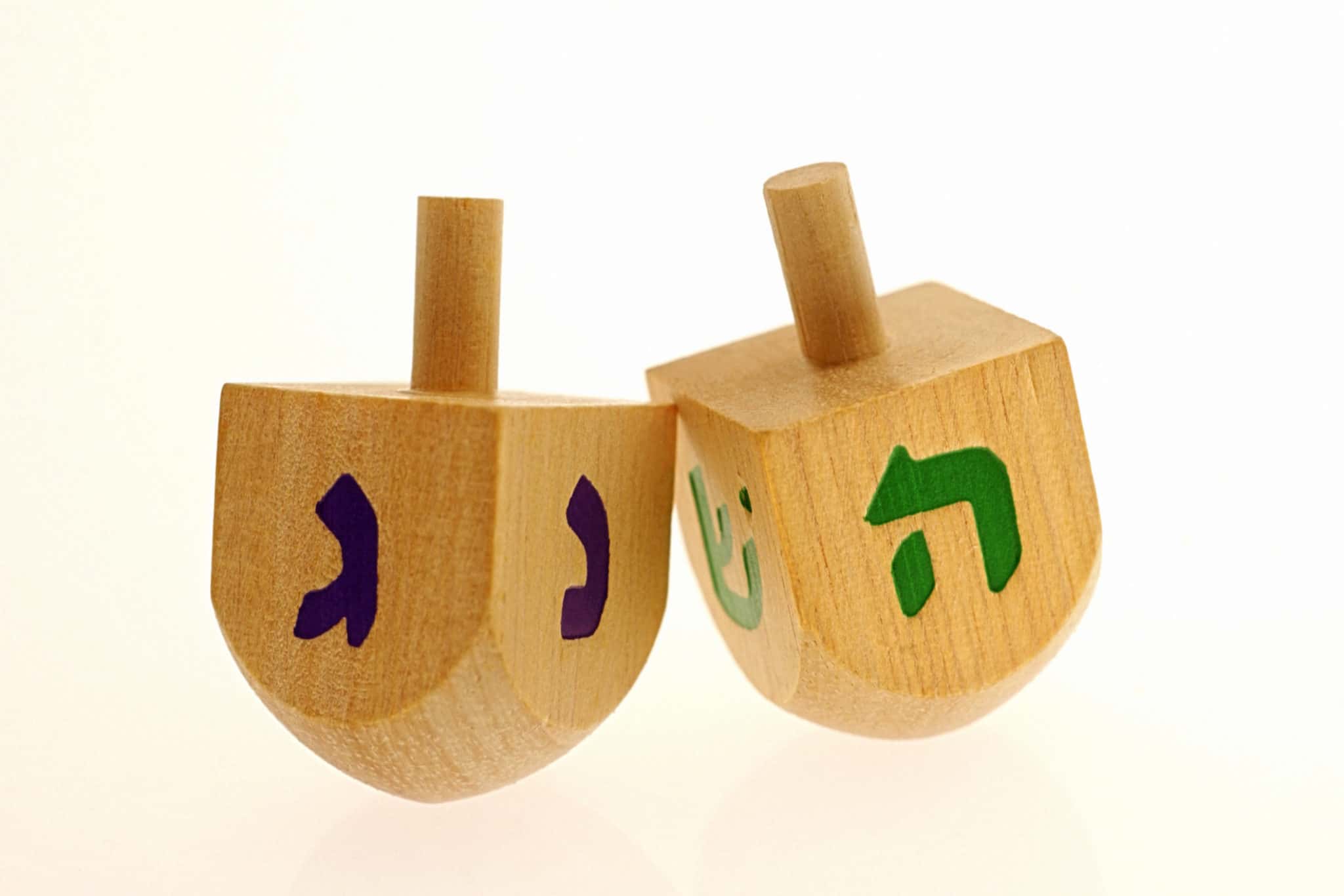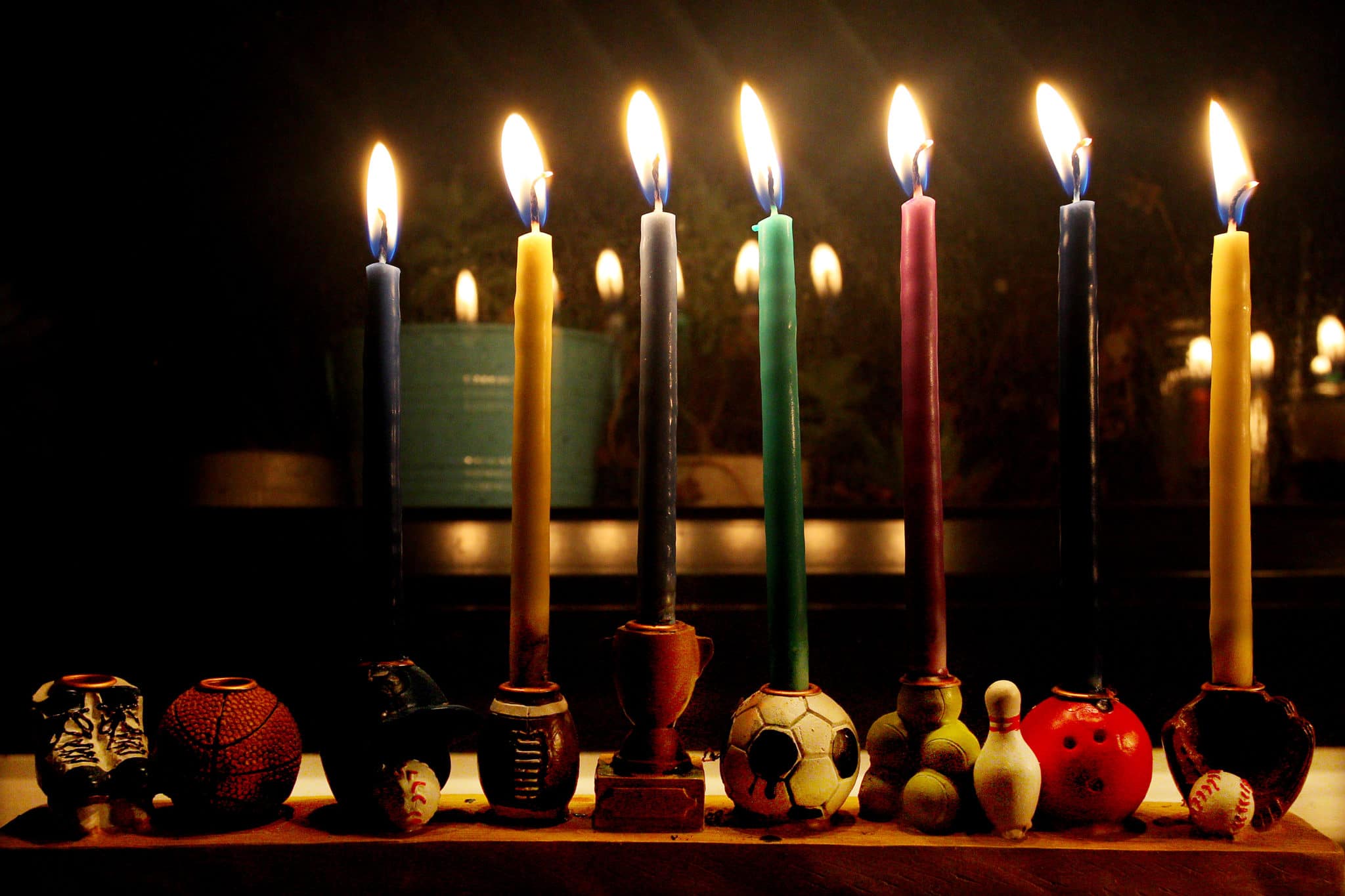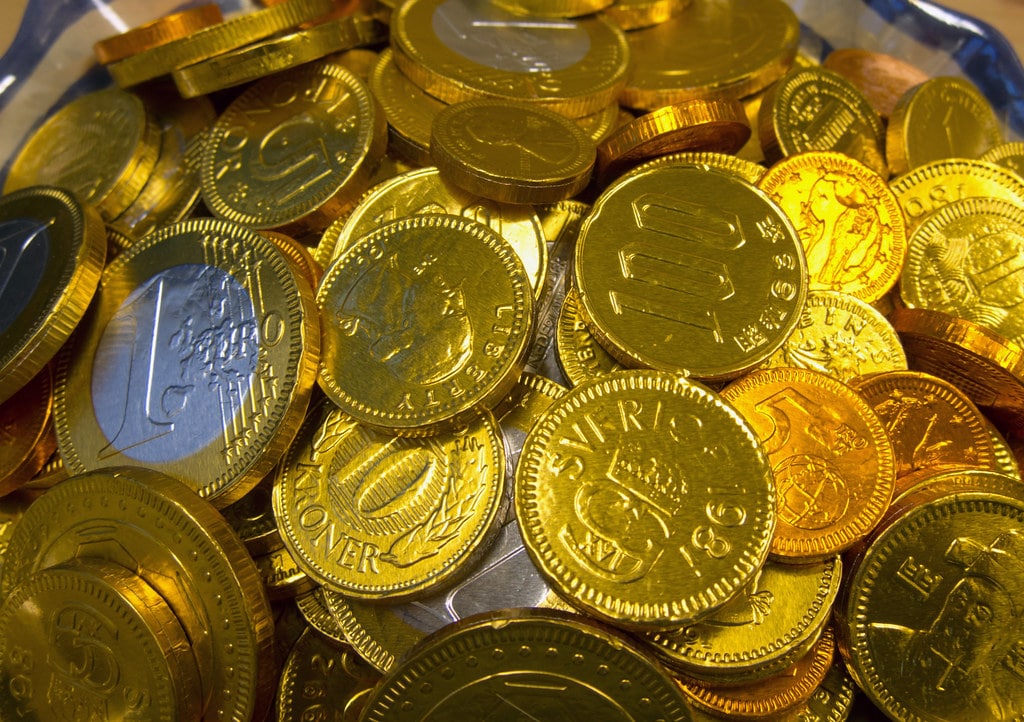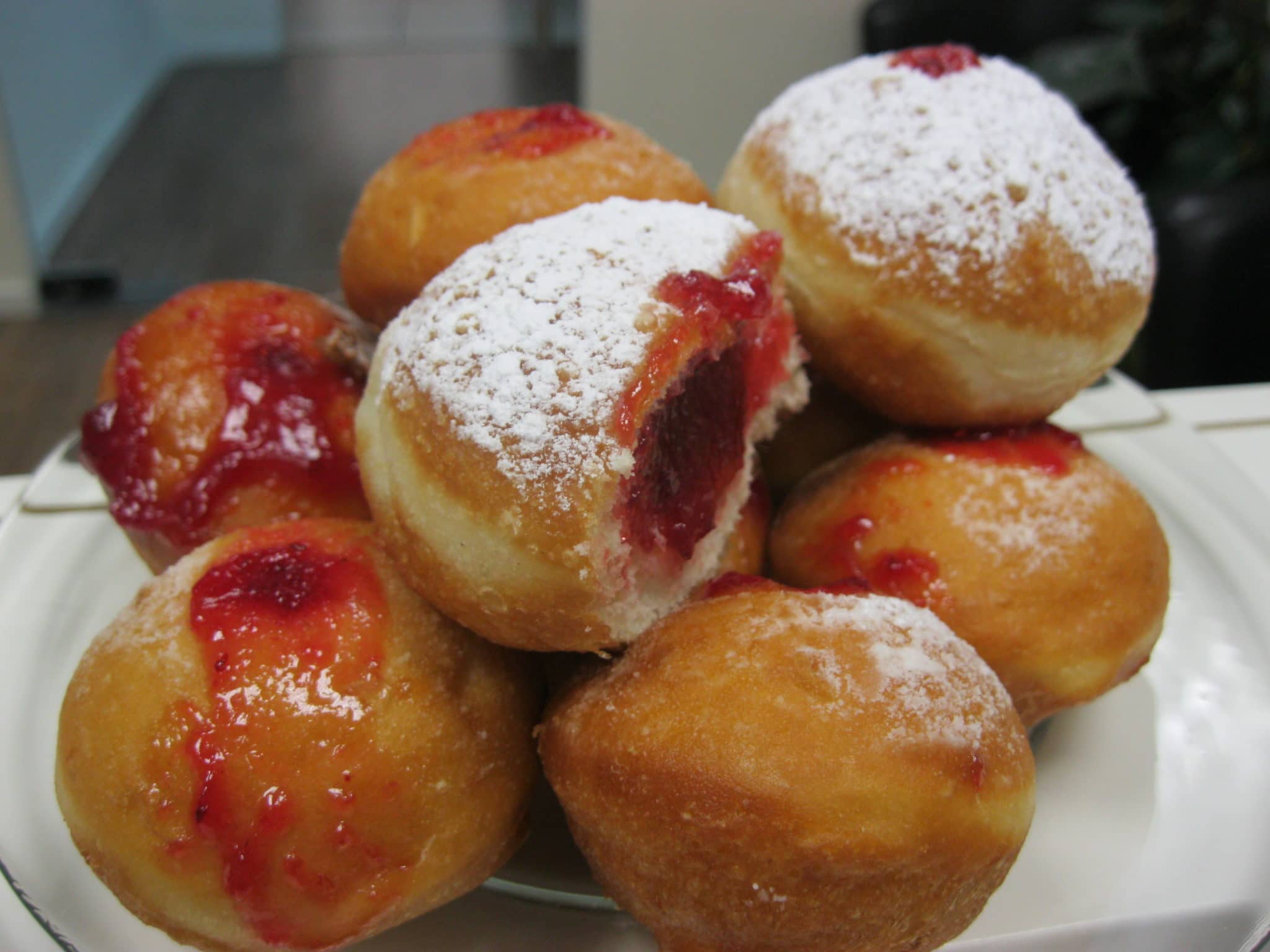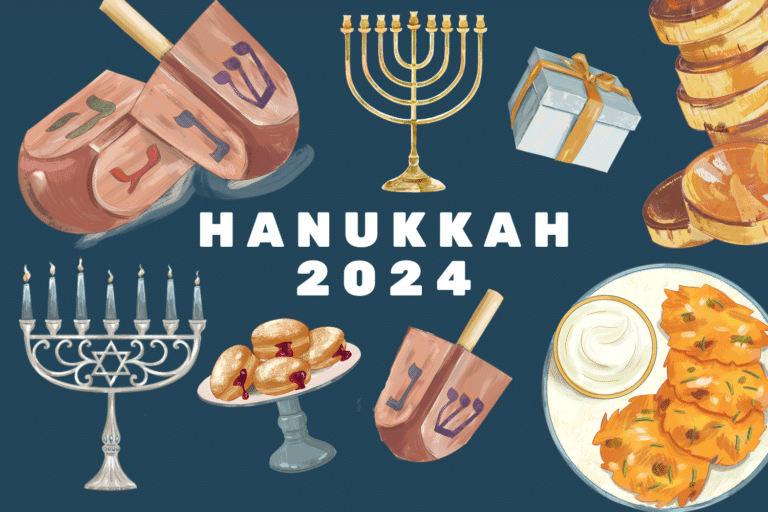
Here’s a rundown of everything you need to know about Hanukkah, the Jewish Festival of Lights, and how to celebrate it.
Read more: Get our guides to all the Jewish holidays.
What is Hanukkah?
Hanukkah is the eight-day Jewish Festival of Lights that typically takes place between late November and late December. Jews celebrate it by lighting the menorah, playing the game of dreidel and eating special holiday foods like latkes and sufganiyot. Hanukkah commemorates the rededication of the Temple in Jerusalem after it was defiled by the Selucids in 164 B.C.E., and is one of the happiest Jewish holidays of the year.
Read more: Get our guides to all the Jewish holidays.
It is also one of the most celebrated Jewish holidays. Although Hanukkah is considered a “minor” holiday (i.e., it’s not mentioned in the Torah and has minimal restrictions), it is anything but minor to many Jews. A survey from 2018 found that two-thirds of American Jews view Hanukkah as “one of the three most important holidays.” And 60% of American Jews, as well as 73% of Israeli Jews, light candles each night. It’s clear for both American and Israeli Jews, Hanukkah is a uniquely popular holiday.
So, to summarize, the “festival of lights” is a happy occasion in which we recall the miraculous rededication of the Temple in Jerusalem in the second century BCE (read the Hanukkah story below). The themes of this holiday include liberation from oppression, religious freedom, divine miracles, human action and courage.
Read more: Here are the best gifts to give Jewish Gen Z for Hanukkah
When is Hanukkah 2024?
Hanukkah begins on the 25th day of the Hebrew month of Kislev and continues for eight days. Hanukkah begins the evening of Wednesday, Dec. 25, 2024, and goes until the evening of Thursday, Jan. 2, 2024.
Is Hanukkah in the Bible?
Hanukkah is not mentioned in the Bible because it emerged out of events that took place centuries after the Bible was written, in the second century B.C.E. So, where does the story of Hanukkah appear?
There are two key narratives of Hanukkah, highlighting different aspects of the holiday. The first is found in the Apocrypha (the Apocrypha are ancient Jewish texts from the Biblical period that are not included in the Hebrew Bible), in First and Second Maccabees. The second version of the story appears in the Talmud.
Let’s unpack these two Hanukkah stories and what they say about the meaning of this holiday. In First and Second Maccabees, we find the story of how a group of Jewish revolutionaries — led by Mattathias the Hasmonean and his son Judah Maccabee — revolted against the empire of King Antiochus IV, who wanted to destroy Judaism.
Here’s the story that is recorded in these apocryphal books: In 167 B.C.E., Antiochus forces the Jews to assimilate into Hellenist Greek culture and makes it a capital offense to observe Judaism. For example, he orders Jews to make sacrifices to Greek gods and to desecrate the Sabbath. He forbids circumcision of newborn sons, study of the Bible and any other observance of Judaism, making these actions punishable by death.
In response, Mattathias and his five sons, including Judah Maccabee, lead a revolt against the oppressive monarch. These Jewish revolutionaries are known as the “Maccabees” or “Hasmoneans.” They are depicted as a group of untrained Jewish warriors who fight a war of beliefs and values against the world’s greatest army and empire.
They realize there are almost no odds in their favor, but they also know they have no choice. This is their mission and it is up to God to decide whether they win.
A year into the revolt, Mattathias is killed in battle, and Judah takes over as leader of the Maccabees. In 164 B.C.E., the Jewish troops capture Jerusalem. They weep when they see the Temple in a state of degradation from years of being in the control of the Seleucid Empire. The Maccabees resolve to rededicate the Temple and restore it to its former glory. The rededication takes eight days; this is the basis of the eight days of Hanukkah.
So, the story found in First and Second Maccabees is about the Jews’ military victory over the Seleucids, culminating in the rededication of the Temple. What about the Talmud’s version of the story?
The Talmud (in Shabbat 21b) only briefly mentions the military victory, and focuses instead on a completely different miracle. According to this account of the story, when the victorious Maccabee fighters were rededicating the Temple, a small quantity of oil that was sufficient only for one day continued to burn for eight days. Here’s how the Talmud describes it:
When the Greeks entered the Sanctuary, they defiled all the oils that were in the Sanctuary by touching them. And when the Hasmonean monarchy overcame them and emerged victorious over them, they searched and found only one cruse of oil that was placed with the seal of the High Priest, undisturbed by the Greeks.
And there was sufficient oil there to light the candelabrum for only one day. A miracle occurred and they lit the candelabrum from it eight days. The next year the Sages instituted those days and made them holidays with recitation of hallel and special thanksgiving in prayer and blessings.
So, the Talmud emphasizes the miracle of the oil lasting for eight days, suggesting that this is the basis of the holiday.
You might also like: 8 Hanukkah romance novels to read this year
Why do we celebrate Hanukkah?
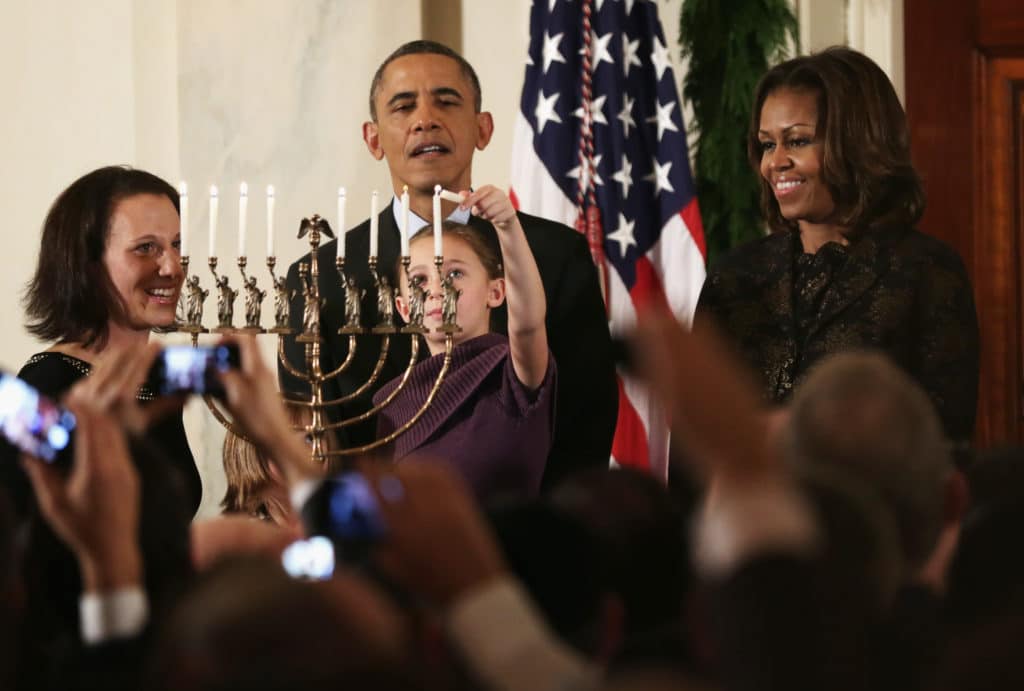
So, what are we really celebrating on Hanukkah? Are we celebrating the miraculous military victory of the Maccabees over the Selucid superpower, the miracle of the oil, or the return of Jewish sovereignty, which has been fulfilled in our own day with the modern state of Israel?
Rabbi Norman Lamm explored the answer to that question in this 1967 speech about the two central themes of Hanukkah: the “nes milhamah,” the miraculous victory of the few over the many and the weak over the strong,” and the “nes shemmen,” the miracle of the oil. “The nes milhamah represents the success of the military and political enterprise of the Macabeeans, while the nes shemmen symbolizes the victory of the eternal Jewish spirit.”
Rabbi Lamm explains how historically, different Jewish groups have emphasized one of these miracles over the other according to their unique context. For example, “secular Zionism spoke only of the nes milhamah, the military victory, because it was interested in establishing the nationalistic base of modern Jewry.” And maybe the rabbis in the Talmud stressed the divine miracle of the nes shemmen over the Jewish military achievement, since they themselves were experiencing the loss of Jewish sovereignty and power.
But the two themes are not mutually exclusive: in fact, Rabbi Lamm argues that both are integral parts of the message of Hanukkah and of Judaism. Through this lens, the miracle of Hanukkah was not solely a result of divine intervention, nor was it only because of courageous human action. Rather, it was because a group of brave Jewish revolutionaries became partners with God in achieving the miraculous.
So, to sum all of this up, on Hanukkah, we are celebrating divine miracles God performed for our ancestors, courageous human action, and the miraculous possibilities that can result from the sacred partnership each one of us has with God.
Why is Hanukkah relevant today?
Those are some timeless messages of Hanukkah, but are there any ways that Hanukkah is particularly relevant today? Sadly, as antisemitism has been rising in the U.S. and globally, with a new poll finding that 1 in 4 American Jews experienced antisemitism in the last year, the Hanukkah story speaks to the ways that Jews continue to face discrimination.
So, what could we learn from the Hanukkah story about how to respond to the recent waves of antisemitism? Rabbi Jonathan Sacks offered the following answer to that question: “On Hanukkah…Jews fought back and won. The Maccabees became a symbol of Jewish activism, of refusing to live in fear… Hanukkah tells us not to curse the darkness, but instead to bring light to the world. It tells us to fight back and not to be afraid.”
Plus, the Hanukkah story offers a powerful message of hope and resilience for overcoming challenging moments. This is symbolized by the miraculous oil that continued to burn for eight days, and the perseverance of the Maccabees in fighting back despite the oppression they endured. This theme of resilience and endurance is expressed in the Haftarah reading during Hanukkah, in Zechariah 4:6: “Not by might, nor by power, but by My spirit, said the Lord of Hosts.”
Rabbi Sacks explained the message of Hanukkah this way: “At times our history has been written in tears, yet we have outlived every empire and every civilization that sought to destroy us. Our spirit, symbolized by the Hanukkah candles, is indomitable. Where others spread darkness, let us bring light.”
How to spell Hanukkah
There are many different ways to spell Hanukkah. The Oxford English Dictionary lists 24 variant spellings: Chanucha, Chanuchah, Hanuca, Hanucka, Chanuca, Chanucah, Chanucca, Chanuccah, Chanuka, Chanukah, Chanukka, Chanukkah, Hanucah, Hanucca, Hanuccah, Hanucha, Hanuckah, Hanuka, Hanukah, Hanukka, Hanukkah, Khanukah, Khanukka, and Khanukkah.
But we don’t recommend you choose just any of those. According to most sources, the most commonly used spellings are “Hanukkah” and “Chanukah.” As this website points out, there are good reasons behind both spellings. While “Chanukah” conveys the unique sound of the word in Hebrew, “Hanukkah” could better resemble the Hebrew letter “het,” which is most similar to an “h” in English. Additionally, spelling it as “Hanukkah” reflects how many English speakers pronounce it, with a soft “h.”
For the record, we spell it Hanukkah here at Unpacked, the same spelling many major Jewish organizations use.
How to wish someone a Happy Hanukkah
To wish someone a happy Hanukkah, you can say, “Happy Hanukkah!” or use one of the following options:
- Hanukkah sameach! (Happy Hanukkah)
- Chag sameach! (Happy holiday)
- Chag urim sameach! (Happy festival of lights)
Is Hanukkah a Jewish version of Christmas?
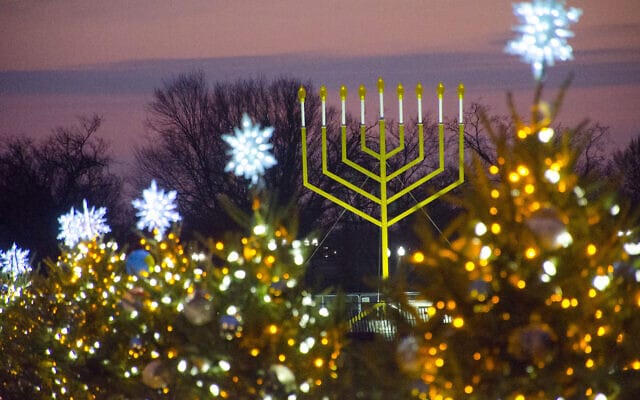
Because Hanukkah falls at around the same time as Christmas, many people believe that it is “Jewish Christmas.” While it is true that Hanukkah, Christmas and other holidays at this time each feature some kind of “lights,” Hanukkah is not merely the Jewish equivalent of Christmas. The two holidays commemorate different events: On Christmas, Christians celebrate the birth of Jesus. On Hanukkah, Jews recall the miraculous victory of the Maccabees against the Greeks and how the Jewish people triumphed over this oppression.
At the same time, Hanukkah and Christmas also share a few things in common. Both highlight the importance of gathering as a family. In Western countries, both holidays can involve gift-giving, and both have themes of hope and renewal.
Hanukkah basics:
- Dreidel (pronounced DRAY-dull) — A dreidel is a spinning top with four sides. Each side has a different Hebrew letter. Outside of Israel, the four letters are nun, gimmel, hey, shin, representing “nes gadol haya sham” (“A great miracle happened there”). In Israel, the shin is replaced with a peh, representing “nes gadol haya po” (“A great miracle happened here”). In addition to simply spinning the dreidel, children also use this spinning top to play the traditional Hanukkah game.
- Latkes (pronounced lot-kuhs) — “Latke” is Yiddish for “pancake.” In Ashkenazi Jewish homes, it is traditional to serve these potato pancakes fried in oil on Hanukkah, symbolizing the miracle of the oil. Latkes are commonly served with applesauce and sour cream. (Read up on their weird history here.)
- Menorah — “Menorah” means “lamp” in Hebrew. Technically, a “menorah” refers to the seven-branched candelabrum that was used in the Temple, and the nine-branched candelabrum we light on Hanukkah is a “chanukiah.” However, many people commonly refer to it as a “menorah.” The Hanukkah menorah holds nine candles: one for each night of the holiday, plus a shamash, or “helper” candle, which is used to light all the rest. The lights of the menorah remind us of the oil in the Temple that continued burning for eight days.
(Photo by Lisa Maree Williams/Getty Images)
- Hanukkah Gelt — “Hanukkah Gelt” means “Hanukkah money” in Yiddish. These are chocolate coins wrapped in gold or silver foil. They are typically given to children as gifts or used as game pieces when playing dreidel.
- Sufganiyot — These are round jelly-filled donuts eaten in Israel and around the world on Hanukkah. The donut is fried in oil (representing the miracle of the oil) and is topped with powdered sugar.
How to light the menorah
Light the menorah each night of Hanukkah after sundown (except on Shabbat — light it before you light Shabbat candles, before sundown). The menorah is meant to “publicize the miracle” of Hanukkah, so some choose to place it near a window so it is visible to those outside.
On the first night, place one candle on the far right of the menorah. Light the shamash and recite the Hanukkah blessings (see below). Then use the shamash to light the first candle, and place the shamash back in its holder. The candles should then burn out on their own, and should continue burning for a minimum of a half hour.
The next night, add another candle to the menorah, placing the first candle all the way to the right and then the next candle beside it. Repeat the process above, lighting the candles from left to right (i.e., light the newest candle first). Repeat all of this for each night of Hanukkah.
Hanukkah blessings
Recite the following blessings when you light the menorah (once you light the shamash, but before you light any other candles):
בָּרוּךְ אַתָּה אֲדֹנָי אֱלֹהֵינוּ מֶלֶךְ הָעוֹלָם אֲשֶׁר קִדְּשָׁנוּ בְּמִצְוֹתָיו וְצִוָּנוּ לְהַדְלִיק נֵר חֲנֻכָּה
Baruch Atah Adonai Elohenu Melech haolam asher kideshanu bemitzvotav vetzivanu lehadlik ner Chanukah.
Blessed are You, Lord our God, King of the universe, who has sanctified us with His commandments, and commanded us to kindle the Hanukkah light.
בָּרוּךְ אַתָּה אֲדֹנָי אֱלֹהֵינוּ מֶלֶךְ הָעוֹלָם שֶׁעָשָׂה נִסִּים לַאֲבוֹתֵינוּ בַּיָּמִים הָהֵם בִּזְּמַן הַזֶּה
Baruch Atah Adonai Elohenu Melech Haolam sheasa nisim laavotenu bayamim hahem bazman hazeh.
Blessed are You, Lord our God, King of the universe, who performed miracles for our forefathers in those days, at this time.
Recite this only on the first night of Hanukkah:
בָּרוּךְ אַתָּה אֲדֹנָי אֱלֹהֵינוּ מֶלֶךְ הָעוֹלָם שֶׁהֶחֱיָנוּ וְקִיְּמָנוּ וְהִגִּיעָנוּ לִזְּמַן הַזֶּה
Baruch Atah Adonai Elohenu Melech Haolam shehecheyanu vekiyimanu vehigianu lizman hazeh.
Blessed are You, Lord our God, King of the universe, who has granted us life, sustained us, and enabled us to reach this occasion.
Popular Hanukkah songs:
The Adam Sandler Hanukkah Song:
Mi Yimalel by the Macabbeats:
מי ימלל גבורות ישראל
אותן מי ימנה
הן בכל דור יקום הגיבור
גואל העם
שמע
בימים ההם בזמן הזה
מכבי מושיע ופודה
ובימינו כל עם ישראל
יתאחד, יקום ויגאל
Who can retell the things that befell us,
Who can count them?
In every age, a hero or sage
Came to our aid.
Hark!
In days of yore in Israel’s ancient land
Brave Maccabeus led the faithful band
But now all Israel must as one arise
Redeem itself through deed and sacrifice.
Traditional Hanukkah songs:
It is customary to sing the following songs after reciting the Hanukkah blessings.
Hanerot Halalu (“These candles”):
הַנֵּרוֹת הַלָּלוּ אָֽנוּ מַדְלִיקִין, עַל הַנִּסִּים וְעַל הַתְּשׁוּעוֹת וְעַל הַנִּפְלָאוֹת, שֶׁעָשִׂיתָ לַאֲבוֹתֵינוּ בַּיָּמִים הָהֵם בַּזְמַן הַזֶּה, עַל יְדֵי כֹּהֲנֶיךָ הַקְּדוֹשִים
וְכָל שְמוֹנַת יְמֵי הָחֲנֻכָּה, הַנֵּרוֹת הַלָּלוּ קֹדֶשׁ הֵן, וְאֵין לָנוּ רְשׁוּת לְהִשְׁתַּמֵּשׁ בָּהֵן, אֶלָּא לִרְאוֹתָן בִּלְבָד, כְּדֵי לְהוֹדוֹת לִשְמֶךָ, עַל נִסֶּיךָ וְעַל נִפְלְאוֹתֶיךָ וְעַל יְשׁוּעָתֶךָ
These Chanukah lights we kindle
In honor of the miracles, the wonders
And salvation wrought and wars
You fought, for our fathers,
In days of yore and in present time
By the hands of Your holy priests.
And throughout Chanukah’s eight days
These lights, these lights shall be sacred:
No right to make use of them have we
Only to look at them and see,
That Your great Name we may thank and praise
For the miracles and salvation You brought
And for Your wondrous deeds.
Ma’oz Tzur (Rock of Ages)
This is the first paragraph of the lyrics:
מָעוֹז צוּר יְשׁוּעָתִי
לְךָ נָאֶה לְשַׁבֵּחַ
תִּכּוֹן בֵּית תְּפִלָּתִי
וְשָׁם תּוֹדָה נְזַבֵּחַ.
לְעֵת תָּכִין מַטְבֵּחַ
מִצָּר הַמְנַבֵּחַ.
אָז אֶגְמוֹר בְּשִׁיר מִזְמוֹר
חֲנֻכַּת הַמִּזְבֵּחַ
Rock of Ages let our song,
Praise thy saving power;
Thou amidst the raging foes,
Wast our sheltering tower.
Furiously they assailed us,
But Thine arm availed us
And Thy word broke their sword,
When our own strength failed us.
And Thy word broke their sword,
When our own strength failed us.
